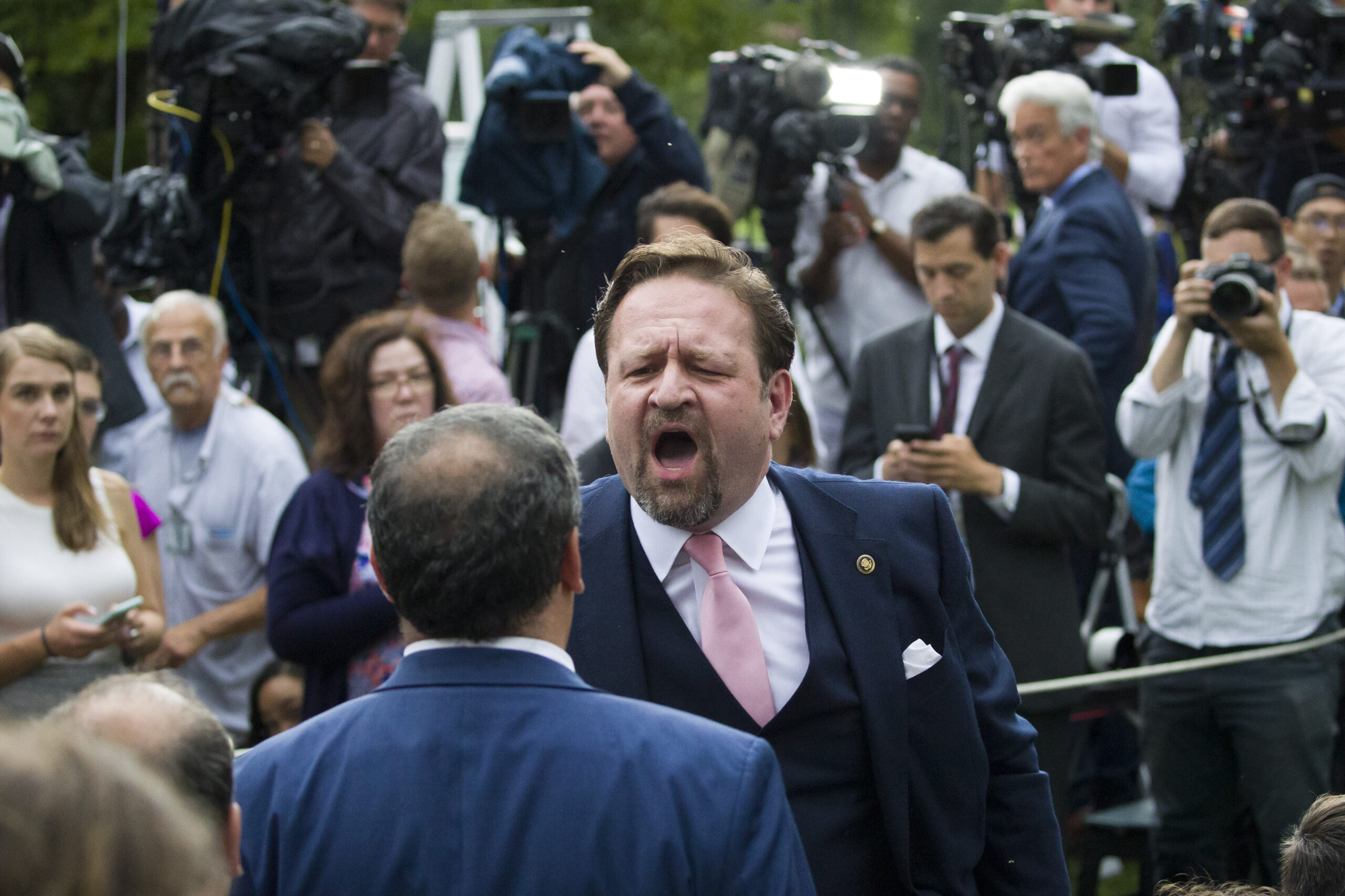In win for press rights, DC Circuit rules that White House may not suspend Playboy correspondent’s press pass

A federal appeals court ruled last week that the White House press secretary may not suspend Playboy correspondent Brian Karem’s press credentials as punishment for a verbal altercation between the reporter and a former adviser to President Trump at an event in the White House Rose Garden last summer.
In a unanimous opinion, a three-judge panel from the Court of Appeals for the D.C. Circuit held that the decision to suspend Karem’s White House press pass for 30 days likely violated his Fifth Amendment right to due process. That’s because Press Secretary Stephanie Grisham offered no standards or guidelines as to what “inappropriate and unprofessional” behavior might lead the White House to rescind a journalist’s press pass without notice, Judge David S. Tatel explained in the court’s opinion.
“[T]he White House may not rely on unarticulated standards of professionalism … to justify the thirty-day suspension for the conduct at issue here,” Tatel wrote. “Karem stands to suffer immediate irreparable harm absent an injunction.”
The legal battle between Karem and the White House began last July, after Karem got into a heated argument with former presidential aide Sebastian Gorka during a “Social Media Summit” in the White House Rose Garden.
Three weeks after the incident, Grisham notified Karem in a letter that, based on his behavior at the summit, she would temporarily suspend his White House press pass.
In a lawsuit against Trump and Grisham, Karem asked a lower court for an injunction that would reinstate his credentials. When the D.C. district court ruled in Karem’s favor in September 2019, attorneys from the Justice Department appealed the case on behalf of Trump and Grisham.
The Reporters Committee and a coalition of 44 media organizations urged the D.C. Circuit to uphold the lower court’s decision to restore Karem’s press pass. The coalition argued that under the Fifth Amendment, the U.S. Constitution requires that the White House provide reporters due process before it revokes, suspends or denies a press pass.
The coalition also cited the precedent set by the court in a similar case, Sherrill v. Knight. In that case, the D.C. Circuit ruled that the White House must “articulate and publish an explicit and meaningful standard governing denial of White House press passes,” before denying a pass.
“The Constitution recognizes that a free press is necessary to keeping the public informed about government activity and protects the right of the press to gather and publish the news,” the media coalition wrote in its brief. “Suspending a journalist’s hard pass and denying that journalist access to White House press facilities deprives the public of reporting about presidents and their administrations and may only occur when stringent and exacting First Amendment and due process requirements are satisfied.”
The appellate panel agreed with the media coalition, and emphasized the Sherrill rule in its own opinion. The court also said that the White House had not actually promoted written directives about journalists’ behavior during press conferences and other events they could access because of their media credentials.
“Forty years on, today’s hard-pass system is little changed from the one described in Sherrill,” Tatel wrote in the opinion. “Although the hard-pass system has existed in similar form for decades, the record before us indicates that, at least prior to 2018, the White House took a seemingly laissez-faire approach to journalists’ behavior on the White House grounds.”
The central argument that the Reporters Committee advanced in the Karem v. Trump amicus brief — that without published rules justified by a compelling state interest, suspensions or revocations of White House press credentials violate reporters’ First and Fifth Amendment protections — echoes the organization’s work in its founding decade. In 1977, the Reporters Committee filed an amicus brief with the White House Correspondents Association and the National Press Club in the Sherrill v. Knight case.
“A system of licensing access to news which is not bounded by constitutional safeguards is open to the abuse of excluding those whose sole crime is opposition to the government,” the Reporter’s Committee’s 1977 brief stated. “Such unchecked discretion can only imperil the vitality of the American press.”
No presidential administration before Trump’s had revoked a reporter’s White House press pass on the basis of their coverage or behavior while reporting, according to Sam Donaldson, the former ABC News journalist who held White House credentials for more than 50 years.
But Karem’s credentials are not the first that the Trump administration has attempted to rescind. In November 2018, a federal judge ordered the president to return CNN reporter Jim Acosta’s White House press credentials. Trump had revoked Acosta’s press pass after he took issue with questions Acosta asked during a press conference.
During the legal proceedings in that case, the Reporters Committee, represented by the Georgetown University Law Center’s Institute for Constitutional Advocacy and Protection, filed a friend-of-the-court brief on Acosta’s behalf. The brief argued that revoking Acosta’s press pass in retaliation for critical reporting violated First Amendment protections.
In the Karem case, Judge Tatel’s opinion criticized the White House for “raising the specter of the absurd” with its argument that, should the court rule in Karem’s favor, the press secretary would not be able to sanction reporters who “moon” the president, use racial slurs or sexually harass their colleagues on White House grounds.
“[T]he White House,” Tatel wrote, “can rest assured that principles of due process do not limit its authority to maintain order and decorum at White House events by, for example, ordering the immediate removal of rogue, mooning journalists.”
The Reporters Committee regularly files friend-of-the-court briefs and its attorneys represent journalists and news organizations pro bono in court cases that involve First Amendment freedoms, the newsgathering rights of journalists and access to public information. Stay up-to-date on our work by signing up for our monthly newsletter and following us on Twitter or Instagram.
AP Photo by Alex Brandon